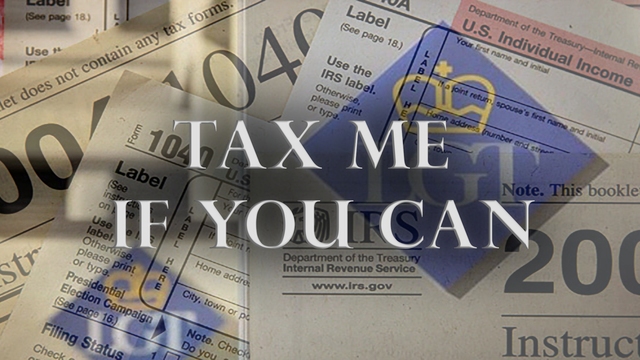Tax Me If You Can
The remarkable story of Heinrich Kieber - roguish hero to some, amoral thief to others. A thrilling investigation into the world of large-scale tax fraud
 We all know the mega rich pay much less tax than the rest of us but just how do they do it? After years working for a Liechtenstein bank, an employee turned whistleblower made off with thousands of incriminating documents. He then sold the data to a number of Western governments, who used it to track the fortunes that their wealthy citizens stashed into secret accounts. This is the remarkable story of Heinrich Kieber - roguish hero to some, amoral thief to others. A thrilling investigation into the world of large-scale tax fraud.
We all know the mega rich pay much less tax than the rest of us but just how do they do it? After years working for a Liechtenstein bank, an employee turned whistleblower made off with thousands of incriminating documents. He then sold the data to a number of Western governments, who used it to track the fortunes that their wealthy citizens stashed into secret accounts. This is the remarkable story of Heinrich Kieber - roguish hero to some, amoral thief to others. A thrilling investigation into the world of large-scale tax fraud.
'When calling, the clients should always use the code words agreed and never state their own names or name of the legal entities.' Heavily disguised, whistleblower, Heinrich Kieber, explains to a US Senate commission the complex ways banks keep money out of sight of international tax officials. 'The LGT Group does not send any mail to customers from Liechtenstein.'
At the centre of the scandal is Prince Alois of Liechtenstein. He is both head of state and owner of the bank. He denies any complicity with tax evaders, stating clearly that it's not his place to pry into his clients' records: 'We're not helping them. We just don't continuously ask questions like a nanny''.
Kieber, the whistleblower, now has a new identity which is a closely guarded secret. With his explosive revelations out in the open, he must live under a witness protection programme. 'The only way his lawyers can communicate with him is through authorities and on very special connections. I have no idea where he is'. Kieber's lawyer believes that his client faces very real threats.
His statements have exposed too much about too many people, and he has effectively stolen the proof from LGT itself. 'Banks offered perfect secrecy as a product. That's what they've been selling.' Kieber's lawyer believes that the LGT bank built a financial empire on facilitating massive tax frauds. 'It is their principal source of income and it's the principal source of income for the entire principality'.
Employed by the bank as a computer technician, Kieber was left in charge of scanning sensitive data. When he realised the nature of the funds entrusted to the bank, Kieber seized the opportunity and sold the data to the German secret service for 6 million dollars. This resulted in Germany's most dramatic crackdown on tax evasion ever. British authorities have also confirmed that they paid for the stolen data. They're now reportedly investigating 100 of Britain's richest families and expecting to recoup at least 100 million pounds in unpaid tax.
When confronted with the allegations, the spokeswoman for the Liechtenstein government sticks to the official line: 'I'm sure that the foreign clients come to Liechtenstein because they receive excellent service and excellent products.' She then quickly adds that 'certainly the bank client secrecy might also have been a reason. She looks very uncomfortable as she speaks but refuses to confirm any commitment to more transparency.
Reporter Liz Jackson
FULL SYNOPSIS


